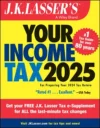Unused Distribution from 529 Plan Is Taxable
Distributions from an account in a 529 plan to pay qualified higher education costs of the account’s beneficiary are not taxable. However, distributions for any other reason are taxable unless there is a valid rollover. In a recent case, a father who set up accounts for his children found out the hard way that his actions could have serious tax results.
In the case, a couple set up accounts for each of their three children. Later that same year when they were experiencing financial difficulties, the father instructed the plan to distribute funds to him from each of the children’s accounts. However, after talking with this wife, he decided he had made a mistake and told the plan to cancel the distributions. Too late! The plan had properly followed the father’s instructions and issued the checks. He then deposited the uncashed distribution checks back into the children’s accounts.
The Tax Court, however, held that he and his wife were taxable on the distributions. They were made for nonqualified purposes, that is, to pay household expenses, and not for qualified higher education costs. The fact that he never cashed the checks did not negate the distribution.
He argued that he had made a rollover by redepositing the money into the accounts. Not so, said the court. With a qualified rollover, a distribution must be transferred within 60 days either to a different account in a 529 plan for the benefit of the original beneficiary or transferred to the credit of a different beneficiary who is a member of the original beneficiary’s family. That did not happen here; the funds were transferred to the same accounts for the original beneficiaries.
The only saving grace was the fact that the court did not impose a 10% early distribution penalty. The penalty applies to distributions not used for qualified education purposes. The father never “used” the funds, so the court did not impose the penalty.
Source: Timothy John Karlen et ux. v. Commissioner; T.C. Summ. Op. 2011-129
Declining balance method
A rapid depreciation method determined by a constant percentage based on useful life and applied to the adjusted basis of the property.



